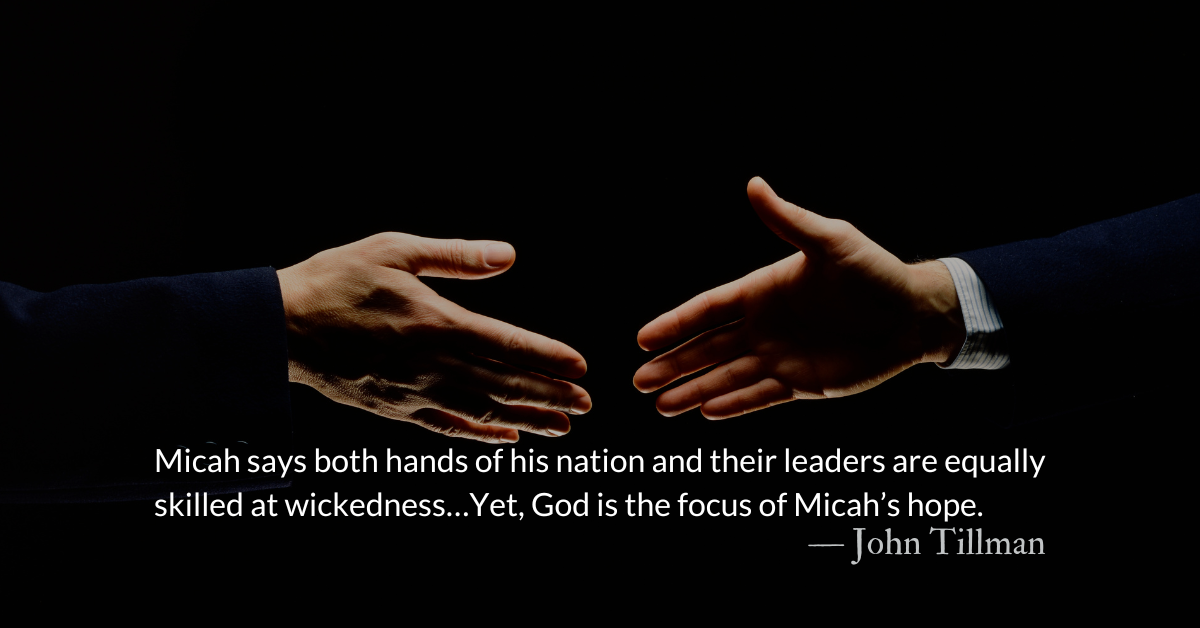Scripture Focus: Amos 7.10-11
10 Then Amaziah the priest of Bethel sent a message to Jeroboam king of Israel: “Amos is raising a conspiracy against you in the very heart of Israel. The land cannot bear all his words. 11 For this is what Amos is saying:
“ ‘Jeroboam will die by the sword,
and Israel will surely go into exile,
away from their native land.’ ”
12 Then Amaziah said to Amos, “Get out, you seer! Go back to the land of Judah. Earn your bread there and do your prophesying there. 13 Don’t prophesy anymore at Bethel, because this is the king’s sanctuary and the temple of the kingdom.”
14 Amos answered Amaziah, “I was neither a prophet nor the son of a prophet, but I was a shepherd, and I also took care of sycamore-fig trees. 15 But the Lord took me from tending the flock and said to me, ‘Go, prophesy to my people Israel.’
Reflection: Tortured Prophets Department
By John Tillman
Over the weekend, many who speak out against abuses in the church, both abuses of power and sexual abuse, found the track “Cassandra,” from Taylor Swift’s new album, devastatingly relatable.
The mythological Cassandra received the gift of prophecy from Apollo but refused him sexual favors in return. As punishment, Apollo cursed her so that no one would believe her warnings. When she prophesied impending tragedies, she was imprisoned and treated as insane and an enemy.
Swift is almost certainly writing about fictional characters or her own personal experiences, not abuses of power or the sexual abuse crisis in churches. But “Cassandra” is skillfully written to be relatable to anyone who has suffered harm for speaking the truth.
Lyrics such as, “So they killed Cassandra first, cause she feared the worst and tried to warn the town…” and “They knew, they knew, they knew, they knew the whole time…” and “a mourning warning no one heard,” speak to the experiences of those who try to bring correction to the powerful and warn the church of abuses. Even the harsh language Swift uses was used word-for-word against women who testified to their abuse.
Taylor Swift is not a prophet, but neither was Amos. Amos was a fig picker, and Taylor picks a guitar. Amos was a rude, aggressive, and outspoken outsider, yet he cared deeply for Israel. This chapter begins with him begging God for mercy.
Amaziah, the priest of Bethel, confronts and threatens Amos. (Are there any poets more tortured than biblical prophets?)
Amaziah accuses Amos of disloyalty and conspiracy. Amaziah defends the institution, “the king’s sanctuary and the temple of the kingdom,” not the truth or the people. He doesn’t care about the injustice reported, he just wants to preserve the status quo. Amaziah assumes a financial motivation. He accuses Amos of being out to make a buck.
Conspiracy, disloyalty, and financial gain are common accusations used today to discredit whistleblowers and victims. Amaziah is alive and well.
Why do we torture the poets, prophets, preachers, and protestors? Why do we allow position and power to blind us from the truth? We don’t have to be Taylor fans, but can we please avoid becoming Amaziah?
Complaints and accusations are true or false based on facts, not on who makes them. Amos proves truth can come from unexpected places. When it does, we should listen. Let’s test prophets, not torture them.
Divine Hours Prayer: A Reading
Jesus said: “In all truth I tell you, whoever welcomes the one I send, welcomes me, and whoever welcomes me, welcomes the one who sent me.” — John 13.20
– From The Divine Hours: Prayers for Summertime by Phyllis Tickle.
Today’s Readings
Amos 7 (Listen 2:45)
Matthew 27 (Listen 8:45)
Read more about Temptation Has No Gender
Seduction and temptation are not feminine (or masculine), nor are they limited to sexual pleasures.
Read more about In Amaziah’s Shoes
Messages from God may come from outside our theological circle or from a political enemy.











